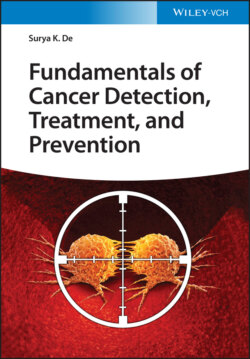Читать книгу Fundamentals of Cancer Detection, Treatment, and Prevention - Surya K. De - Страница 67
2.7 Role of Sugar and Artificial Sweeteners on Cancer
ОглавлениеAlthough there is no scientific evidence that eating sugar is a direct cause of cancer, the overconsumption of sweets often results in consuming an excess number of calories, leading to overweight and obesity. Having too much body fat is associated with many forms of cancer, as discussed previously. Doctors recommend eating nutritious and filling foods, including whole grains, vegetables, fruits, and beans, and replacing sugary beverages with low‐ or no‐calorie drinks. It is also helpful to drink lots of water to help flush any toxic chemicals from the body.
As a side note, for people who already have cancer, there is no confirming evidence that eating sugar will make their cancer worse, or that if they stop eating sugar, their cancer will shrink or disappear. However, the same precaution involving the contribution of sugar to excess body fat applies.
Regarding artificial sweeteners, researchers have done numerous studies of sugar substitutes such as saccharin (Sweet'N Low®, Sugar Twin®, and Necta Sweet®), cyclamate, aspartame (Equal®, NutraSweet®), acesulfame potassium (Sunett® and Sweet One®), sucralose (Splenda®), and neotame, and found no evidence that they cause cancer in humans. With the exception of cyclamate, all of these artificial sweeteners have been approved by the Food and Drug Administration for sale in the United States.
